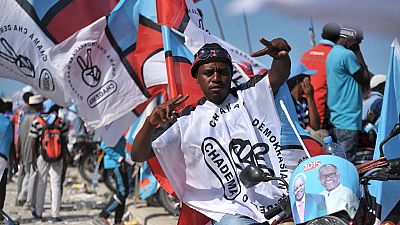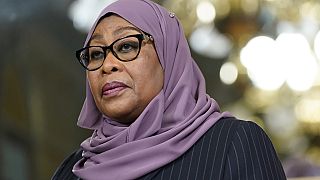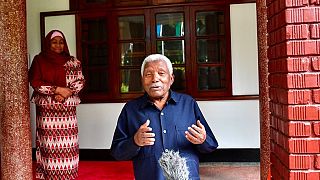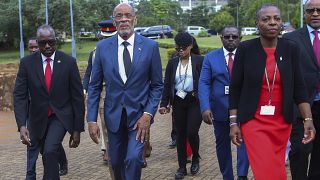Tanzania
Tanzania’s opposition parties have mounted stiff resistance against amendments to the Political Parties Act, which they say are designed to undermine their activities and consequently the democratic space in the country.
They have called upon the lawmakers who are expected to vote on the bill next month, to reject the amendments. The ruling Chama Cha Mapinduzi (CCM) party enjoys a parliamentary majority.
The group of parties and legal experts are also considering a legal challenge to the proposals by the Registrar of Political Parties.
“Unfortunately, if the law is tabled, we all know that CCM will pass it without consideration of its legality and we will then have to go to court,” Fatma Karume, the president of the Tanganyika Law Society, told the EastAfrican newspaper.
In this article, we look at some of the provisions of the law, that the opposition are vehemently protesting.
Immunity for Registrar of Political Parties
The bill, if passed would protect the Registrar of Political Parties from litigation for actions taken, including how he deals with the opposition.
Section 7 of the proposed amendment states: “No suit shall lie against the Registrar, Deputy Registrar, Assistant Registrar or other officers appointed under this Act, for anything done or omitted to be done in good faith, in the performance of any function under this Act.”
Political parties banned from ‘activism’
The political parties are also protesting provisions banning them from operating as pressure groups.
The bill defines a pressure group or activist group as “a group of people that influences public opinion or government action in the interest of a particular cause.”
The opposition leaders say this would make it impossible for them to hold political campaigns and conduct policy work.
Regulating political coalitions
While the new law recognises the formation of coalitions by political parties, the opposition protests the provision that empowers the minister responsible for good governance to prescribe how such a coalition would be set up.
They argue that a minister, being a member of the ruling party, would likely set regulations biased against the opposition.
Financial regulations
The bill bans political parties from receiving financial support from abroad. The opposition says this provision is likely to affect the CCM party too, which has been one of the beneficiaries of Chinese Communist Party.
Under the new amendments, the registrar can order a specialised financial audit for any political party, in addition to suspending government subsidies to political parties for up to six months.
Micro-managing internal affairs of parties
Section 5B gives powers to the registrar to request any information from a political party, a leader or a member.
The opposition accuse the state of seeking to have full control of parties and effectively ‘spy’ against them.
“How is it possible to give party registrar the mandate to monitor intra-party elections? This very mechanism will be used by the ruling party to choose who should be its opponents,” said CUF director for foreign affairs Ismail Jussa.
Jail terms and hefty fines
The new law also proposes jail terms of up to 20 years, and hefty fines for parties members involved in militia-type activities.
The government claims it has struggled to implement the current law, because of existing punitive gaps for breach of the law.
Regulating civic training
Section 5A of the bill requires anyone wishing to conduct civic education or any kind of capacity building training to a political party to seek permission from the political registrar.
‘‘Restrictions on people or institutions expected to provide civic education and capacity-building training are intended to restrict sister parties from assisting each other,’‘ argued the Chadema political party.
Gov’t responds
The registrar of political parties, Retired Judge Francis Mutungi, has dismissed the protests of the opposition, accusing them of disseminating propaganda instead of educating the public on the bill.
“They complain that the bill bans political parties from functioning as pressure groups while they know for sure that the two are very different things,” Mutungi told the local Citizen newspaper.
He advised those opposed to the proposals to use official channels including the planned consultative meeting on December 21-22 in Zanzibar, to air their views.













01:11
World Bank suspends funding for Tanzania tourism project
Go to video
How South Africa's former leader Zuma turned on his allies and became a surprise election foe
00:45
Togo: Analyst weighs in on what to expect in upcoming legislative elections
11:10
Coltan: at the heart of DRC-Rwanda tensions [Business Africa]
Go to video
Togo bans protests against arrest of opposition activists, constitutional reform
01:51
Togo: Consultation between MPs and traditional leaders begin over constitutional review